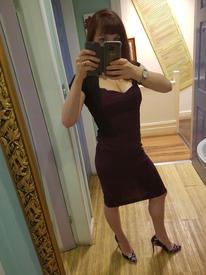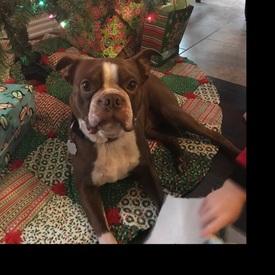Oil calories

Arletee657
Posts: 4 Member
Ive been logging in everything I've eating for a while now and I thought I was doing well until I realzied that cooking oil has calories too (I know I probably should have checked but I just assumed it wasnt important  ) so how would I accurately log them?
) so how would I accurately log them?
0
Replies
-
You would log the amount you use. So if you add a tablespoon of oil to the pan then log a tablespoon of oil.1
-
As the above poster said, if it's like a stir fry, or a sauteé, then log the full tablespoon or whatever amount you're using. If you are deep frying, then the most accurate way - and it's not 100% - would be to measure the oil before cooking and then measure the amount afterwards to see what's left and been absorbed by the food.
You could also use a non stick pan, a well seasoned cast iron skillet, and/or cooking spray.1 -
Okay thanks. Ill start doing that now1
-
I would weigh cooking oil as measuring it with a spoon is much more unreliable. You don't know if your spoon is similar to what generally is considered to be a spoon. And you can pile oil up on it.
Water weighs about 100gr for 100ml. Oil is less dense and thus weighs a bit less than the corresponding amount in ml. I would just log 10ml for 10gr to be honest. Put the bottle without lid on the scale, switch it on or tare it, use the oil, put the bottle back on the scale to see how much you used. This way you are overestimating a tiny bit.0 -
I would weigh cooking oil as measuring it with a spoon is much more unreliable. You don't know if your spoon is similar to what generally is considered to be a spoon. And you can pile oil up on it.
Water weighs about 100gr for 100ml. Oil is less dense and thus weighs a bit less than the corresponding amount in ml. I would just log 10ml for 10gr to be honest. Put the bottle without lid on the scale, switch it on or tare it, use the oil, put the bottle back on the scale to see how much you used. This way you are overestimating a tiny bit.
You know as soon as you say: 'water weighs about ... ', it pretty much gets to be as unreliable as a spoon to measure by weight.
0 -
Get a set of liquid measuring spoons and cups. It makes life much easier, and logging more accurate. Use your digital scale for solids and semi solids.
Cheers, h.3 -
I would weigh cooking oil as measuring it with a spoon is much more unreliable. You don't know if your spoon is similar to what generally is considered to be a spoon. And you can pile oil up on it.
Water weighs about 100gr for 100ml. Oil is less dense and thus weighs a bit less than the corresponding amount in ml. I would just log 10ml for 10gr to be honest. Put the bottle without lid on the scale, switch it on or tare it, use the oil, put the bottle back on the scale to see how much you used. This way you are overestimating a tiny bit.
You know as soon as you say: 'water weighs about ... ', it pretty much gets to be as unreliable as a spoon to measure by weight.
Fresh water weighs *exactly* 1g per 1ml (density 1000kg per cubic metre). There's nothing approximate about that.
Oil, however, weighs between 800 and 900 kg per cubic metre. So 10ml of oil only weighs between 8 and 9 grams. I would personally use a measuring spoon for oil.3 -
I would weigh cooking oil as measuring it with a spoon is much more unreliable. You don't know if your spoon is similar to what generally is considered to be a spoon. And you can pile oil up on it.
Water weighs about 100gr for 100ml. Oil is less dense and thus weighs a bit less than the corresponding amount in ml. I would just log 10ml for 10gr to be honest. Put the bottle without lid on the scale, switch it on or tare it, use the oil, put the bottle back on the scale to see how much you used. This way you are overestimating a tiny bit.
You know as soon as you say: 'water weighs about ... ', it pretty much gets to be as unreliable as a spoon to measure by weight.
100ml water weighs exactly 100g.
I measure oil with a measuring spoon. This is accurate enough. The error is about 1g which is about 7cals which I'm not bothered about. 7cals is withun the error of all foods we eat anyway.0 -
CattOfTheGarage wrote: »I would weigh cooking oil as measuring it with a spoon is much more unreliable. You don't know if your spoon is similar to what generally is considered to be a spoon. And you can pile oil up on it.
Water weighs about 100gr for 100ml. Oil is less dense and thus weighs a bit less than the corresponding amount in ml. I would just log 10ml for 10gr to be honest. Put the bottle without lid on the scale, switch it on or tare it, use the oil, put the bottle back on the scale to see how much you used. This way you are overestimating a tiny bit.
You know as soon as you say: 'water weighs about ... ', it pretty much gets to be as unreliable as a spoon to measure by weight.
Fresh water weighs *exactly* 1g per 1ml (density 1000kg per cubic metre). There's nothing approximate about that.
Oil, however, weighs between 800 and 900 kg per cubic metre. So 10ml of oil only weighs between 8 and 9 grams. I would personally use a measuring spoon for oil.
That's what I mean. Unless you live in a place where water is very hard and very saturated with minerals. (ever had lime scale on your tea? That saturated!)
I found out my spoons don't conform to what is considered to be a spoon, and I was over by quite a few ml. Plus I need to wash an additional item. I stick with weighing my oils. It's fast, easier, and there's no way I'm underestimating this way.0 -
I'm just saying grams is not all that more accurate if your guestimating a weight value in comparison to water etc.
Sometimes logging per tablespoon (which is 14.7ml ish) or whatever of something is just fine.0 -
But what about the oil left in the pan?
I've wondered how to measure this too. I eat a lot of Schnitzel which I shallow fry in the pan, and I have no idea how much oil it absorbs. It doesn't look like much, I haven't been weighing it - I just allow 100 calories, but I have no idea if that's even close.1 -
bernadettenz wrote: »But what about the oil left in the pan?
I've wondered how to measure this too. I eat a lot of Schnitzel which I shallow fry in the pan, and I have no idea how much oil it absorbs. It doesn't look like much, I haven't been weighing it - I just allow 100 calories, but I have no idea if that's even close.
Weigh pan empty, weigh pan after cooking, difference is left over oil1 -
Alatariel75 wrote: »bernadettenz wrote: »But what about the oil left in the pan?
I've wondered how to measure this too. I eat a lot of Schnitzel which I shallow fry in the pan, and I have no idea how much oil it absorbs. It doesn't look like much, I haven't been weighing it - I just allow 100 calories, but I have no idea if that's even close.
Weigh pan empty, weigh pan after cooking, difference is left over oil
Lol how big are your scales?!0 -
bernadettenz wrote: »Alatariel75 wrote: »bernadettenz wrote: »But what about the oil left in the pan?
I've wondered how to measure this too. I eat a lot of Schnitzel which I shallow fry in the pan, and I have no idea how much oil it absorbs. It doesn't look like much, I haven't been weighing it - I just allow 100 calories, but I have no idea if that's even close.
Weigh pan empty, weigh pan after cooking, difference is left over oil
Lol how big are your scales?!
They can weigh up to 5kg, how big are your pans?1 -
bernadettenz wrote: »But what about the oil left in the pan?
I've wondered how to measure this too. I eat a lot of Schnitzel which I shallow fry in the pan, and I have no idea how much oil it absorbs. It doesn't look like much, I haven't been weighing it - I just allow 100 calories, but I have no idea if that's even close.
@bernadettenz USDA database has "45101756, KNORR, WIENER SCHNITZEL, UPC: 891128298017" is that close enough for your purposes?0 -
I use measuring spoons for oil you can get incremental ones that go from 2.5ml up to 15ml, getting a really good none stick pan and a oil mister or fry light spray can help negate a great deal of oil cals (also great for roasting potatoes and veg in the oven). If you're finding alot of left over oil after cooking start using less oil, I log what I measure if there's a couple of ml's left I don't discount them as it's usually mixed with the moisture from cooking so can't really tell whats excess oil or not, just try to use less oil next time. If you only use a little oil you can always add a little water to the pan if its getting a bit dry and don't have the heat set up to max. x0
-
I don't fry stuff in deep oil such that the remaining oil in the pan has bits of batter left in the pan after the food has been removed, so I haven't tried to work out a precise way of accounting for all the oil. However, knowing that oil is 9 calories per gram and batter is 4 calories per gram means you could weigh the clean dry pan before cooking, weigh the oil you put in the pan before heating, cook your stuff, then after cooking you could weigh your pan with the leftover aggregate of stuff in it and use that weight difference to log your added oil and know for certain that you haven't under-logged oil. Do that only once and save it as a recipe for serving sizes of 1 gram. After that you need only weigh your plated food and the recipe nutrition value is scalable.0
-
middlehaitch wrote: »Get a set of liquid measuring spoons and cups. It makes life much easier, and logging more accurate. Use your digital scale for solids and semi solids.
Yes and no. I find it easier to use the scale when I am adding liquids to something, for example, adding milk to cereal. Why dirty a measuring cup or spoon when the scale can do the job just as well or better.
For viscous fluids, like honey, the scale is definitely the way to go. I even use it for peanut butter -- much easier than trying to do a level tablespoon of the stuff. Yogurt, too. Just put the bowl on the scale and scoop yogurt into it until you reach the weight of whatever serving you are hoping to have.
Still, there are things for which a spoon measure works better. Spices for example. My $20 scale can't really cope with having things added a pinch at a time. It just sits there ignoring those dribbles waiting for a big wad of stuff to change weight. Of course, with stuff like spices, the number of calories are so small it really doesn't matter anyway.0 -
I don't bother logging most oils. If I put a tbsp of oil in the pan and split the contents with my wife at diner the number of added calories may only be 30 when you consider the oil that was left behind.
It would also be rather difficult to deep fry and measure the oil before and after. I mean, how much oil is left in the fryer because it is viscous and some remains behind even when emptied. I guess you could weigh the fryer before and after cooking, but why bother. Just assume that fried food is calorie dense and don't bother. Perhaps better to just estimate one to two tablespoons is absorbed based on the volume of food that is cooked. Or you could simply look up "deep fried" when logging your food from the database. Neither method is 100% accurate and if you are in a large calorie deficit anyway, it probably won't matter that much.0 -
I log the total amount put in regardless of how much may be left in the pan. So if I cooked a meal for 2 in 15g of oil I'd log 7.5g. It's close enough for me.5
-
I hate trying to measure stuff like that, so I weigh the bottle before and after use. The difference is how much I used! Bing bang boom.1
-
It's always the hardest for me to log, but I just log exactly what I use in cooking -15%. Some stays in the pan. Idk why I do it this way but it seems to work for me so that's what I do!0
-
I put my pan on the scales before I start cooking and add the oil using the ML setting. I log exactly how much I pour in (always 5ml of rapeseed oil). I know some of it doesn't get used up but I don't think a ml or two will make too much difference.0
This discussion has been closed.
Categories
- All Categories
- 1.4M Health, Wellness and Goals
- 398.2K Introduce Yourself
- 44.7K Getting Started
- 261K Health and Weight Loss
- 176.4K Food and Nutrition
- 47.7K Recipes
- 233K Fitness and Exercise
- 462 Sleep, Mindfulness and Overall Wellness
- 6.5K Goal: Maintaining Weight
- 8.7K Goal: Gaining Weight and Body Building
- 153.5K Motivation and Support
- 8.4K Challenges
- 1.4K Debate Club
- 96.5K Chit-Chat
- 2.6K Fun and Games
- 4.8K MyFitnessPal Information
- 12 News and Announcements
- 21 MyFitnessPal Academy
- 1.5K Feature Suggestions and Ideas
- 3.2K MyFitnessPal Tech Support Questions
















